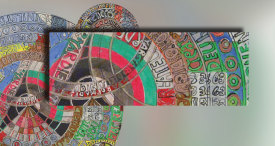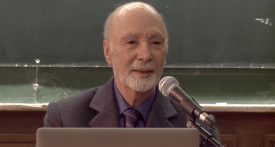Search results for tag "Ethical practice" - 10 answer(s)
69
Vote
The imperious self can be anywhere: in our negative actions but also in our seemingly most noble behaviour. Often, the “good deed” we accomplish actually results from an impulse of our imperious self. In such cases, it is not the action itself that will help us identify the mark of the imperious self, but the manner in which the action is accomplished, the underlying intention and emotions. This is an important issue. The imperious self knows very well that once our inner evolution has reached a certain level, it can no longer present itself in the guise of basic anti-ethical impulses such as theft, aggression, verbal violence and so on, that are easily detected and immediately rejected by our soul’s immune system. Consequently, it will often present itself in the guise of actions that are not intrinsically illicit or that may even be considered very positive, but that one will carry out with negative intentions or in an exaggerated and harmful manner.
Read more
87
Vote
Not settling for the mere condition of a human-animal and developing the qualities that will make us truly human, such is the ultimate task facing us. The pressing challenge, though, is to prevent Bob, our “inner bonobo”, to end up taking control. So much of our behaviour already bears its mark! Practically speaking, we need to imagine the worst and take the initiative, in other words strive to take control of our self. Only on this basis can we work toward cultivating our humanity.
Read more
111
Vote
There is no Nobel Prize (to date) rewarding ethics research, but surely no one would dispute that in this field Ostad Elahi was perfectly learned. What is meant here by the word “learned”? Being learned is not merely knowing. A learned individual is first and foremost one who comprehends, not in theory only or through sustained reading, but as a result of self-acquired concrete knowledge. To comprehend a reality is to have concretely experienced it, to have gained first-hand knowledge of some truth. Indeed, when Ostad Elahi addresses any topic, you have a distinct sensation that he is speaking from personal experience.
Read more
85
Vote
The imperious self is an anti-self, i.e., a contrary force that is rebellious and systematically out to pull us away from where our real self—our soul—wants to lead us. If you want to meet with your imperious self, there is nothing simpler, all you need is to take a step towards some ethical or divine principle: help someone without expecting anything in return, hold our tongue when your impulse is to backbite or show off, try to rid your mind of negative thoughts, etc. The reaction will be immediate, and you will clearly witness the power of your imperious self in countering your attempts at such accomplishments.
Read more
104
Vote
As we have seen, the imperious self functions on the basis of the “terrestrial” values (ego and material interests). Its action on us could be summarized as follows: to focus our thoughts and aspirations solely toward terrestrial values and to make us forget celestial values; to put it in another way: to make us act solely according to our own material and selfish interests with no regard for others’ interests or for our spiritual dimension.
Read more
115
Vote
If the plural “portraits” is used here, it is to best illustrate the multifaceted and elusive figure of our inner life for the imperious self is a shape-shifting model that makes for a difficult subject for a painter. We never really know where to find it when we look for it, and we often find it where we have not been looking for it—at times in our outward behaviour, more often in our thoughts and emotions, in our most daily activities as well as in our actions that appear most spiritual and most noble. The imperious self is like a creeping rootstalk that runs underground and spreads itself out in the Self.
Read more
144
Vote
This is the first piece in an extended series dedicated to the practice of ethics and more specifically to the identification of the main source of our anti-ethical tendencies: the imperious self. This concept is given a precise definition in The Path of Perfection: “The imperious self is a powerful psychological energy that is harmful for the soul. This energy is continuously produced by the activity of our character weak points, resulting in anti-ethical and anti-divine impulses and desires at the level of our conscious self”.
The paradox is that the fierce resistance deployed by our imperious self against our ethical endeavours actually constitutes the necessary condition for the process of spiritual perfection to take place. In this sense it could very well be considered as our “best enemy”.
Read more
200
Vote
After the success of the “One day, one Maxim – 28 days straight” lab, which was based on the volume entitled 100 Maxims of Guidance, OstadElahi-inPractice is about to launch a new lab that will follow the same dynamic and intensive format. This time, each day of the 28-day period will be devoted to meditating upon and putting into practice one of the sayings selected from Words of Truth (draft of the forthcoming English translation of Ostad Elahi’s oral teachings originally presented in the Persian book Bargozideh).
Read more
1575
Vote
The principles of a correct education of thought are not matters of intellectual speculation: it is through practice that they bear fruit. But what does putting them into practice actually mean? Bahram Elahi answers this question by pointing out the dangers of overly abstract approaches to practice and self-transformation. It is not enough to consider the principles in theory, or even to self-suggest them daily with the best willpower in the world: in order to “concretely feel” them, we must pitch them against reality.
Read more
282
Vote
In reference to his approach to the path of spiritual perfection, Ostad Elahi once said “This is not a path of words, but of deeds; only through action can progress be achieved”. This idea lead to the creation over a year ago of the website OstadElahi inPractice. It has now inspired the design of a “100% action express lab” entitled “One day, one Maxim – 28 days straight”. This new lab, based on a volume entitled 100 Maxims of Guidance first published in 1995 on the occasion of Ostad Elahi’s centennial, will be launched in the next few days on OstadElahi inPractice.
Read more
Next »
|

 News
News Podcast
Podcast













Recent Comments